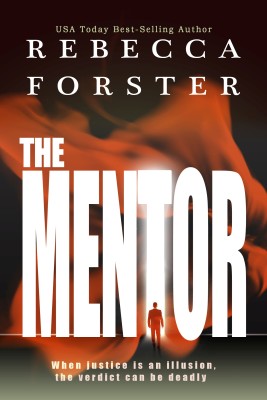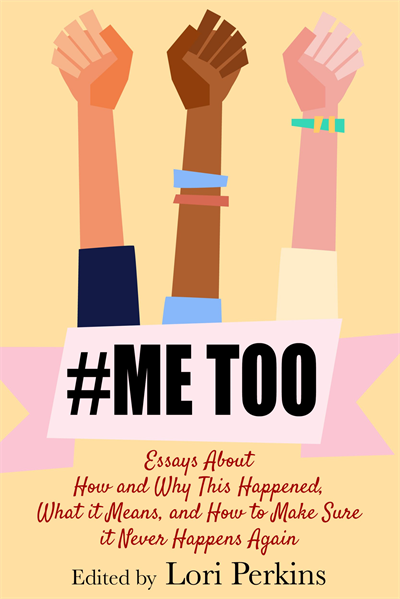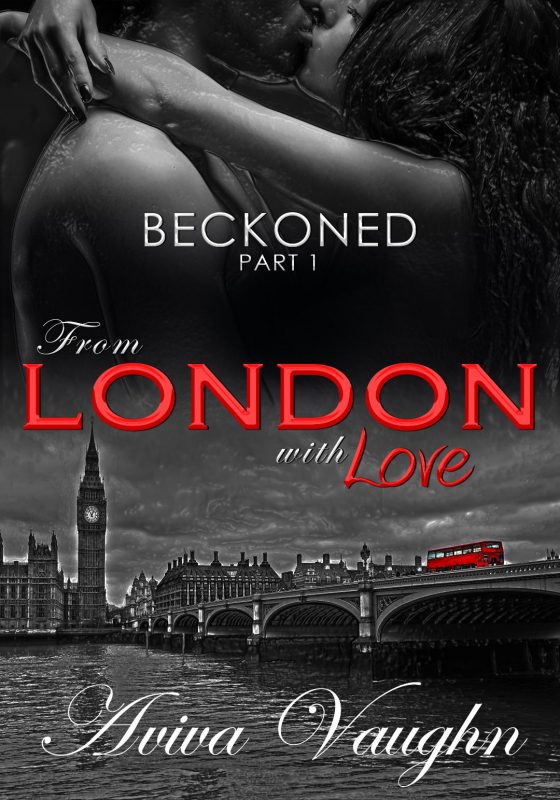Joan Johnston – Success Is A Journey
May 31, 2006 by A Slice of Orange in category Archives tagged as Author Interview

After twenty years, forty-six books and eight New York Times bestsellers, Joan Johnston is a savvy business woman who knows a thing or two about success. Here she shares some of her secrets.
Q – Is there a downside to success? What are the challenges that face you now that you are a success?
A – It’s harder to write with money in the bank. Forty-six books later, it’s difficult to remember the time when if I didn’t finish the book and get the “on acceptance†check I wouldn’t be able to pay the light bill or the car payment or the rent (I couldn’t afford to buy a house). That can be a tremendous impetus to keep the seat of the pants to the seat of the chair and be productive.
It’s also harder to write (endure the isolation of writing) now that I’m a happier person. When I started writing I was in an unhappy marriage and had a job I didn’t like. If I went into the closet (literally) to write, I could escape from a life I didn’t particularly like. Eventually, I got out of the marriage and the job (went from being a lawyer to being a college professor, then to writing full-time). At first, writing helped pay the bills. Then it became who I was. I’ve been working for balance ever since.
Things have changed a great deal in the publishing industry, so you really need to be productive (write at least two books a year) to keep your name in the public eye. In the old days (before Nora Roberts proved them wrong), publishers believed you would be “overexposed†if you published more than one book a year. They still believe one hardcover a year is plenty, but they would like to sell that paperback you write as well. That really gives you three books out a year (including the paperback reprint of the hardcover) and maybe four, if they decide to reprint something from your backlist.
Can you write only one book a year and still be successful? Yes. But you’re not going to grow your career very fast, and you may even lose ground. Nowadays, publishers encourage you to write as many books as you can per year. More money for them, more money for you. Of course, less time for you to spend that money…
Q – After so much success, do you feel successful? Do you ever still feel like a hack? Do you ever feel afraid when you start a new book?
A – You never get over feeling afraid that this will be the book where people realize you could never really write. When I go back and read books I published years ago, I’m amazed at how good a read they are. I marvel, did I really write that? Where did I come up with those ideas? How did I know that would make you cry? Make you laugh? Make you empathize so much with the characters? And I wonder how I will ever do it again.
I still have feelings of inadequacy all these years—and books—later, precisely because writing is never easy. It’s always work. It’s always a challenge. New characters, new situations, maybe even a new genre, if I’m being adventuresome. In the back of my mind is a mantra that someone must have put there forty-six books ago—you’re only as good as your most recent book. That’s a lot of pressure to live with, book to book to book. And you’re always trying to write a better book—despite the fact the book you just wrote is the very best book you could write.
But it’s no different than any other creative job, where you can’t quit being creative and hope to stay on top. You have to challenge yourself constantly to do better, to do more, to dig deeper, to find something that pulls your heartstrings and “go for the choke.â€
Q – As a bestselling author forty-six novels, do you ever have a problem coming up with new ideas?
A – No. The problem is getting them down on paper in some semblance of what was in your head.
Q – Have you ever suffered writer’s block? If so, how did/do you get past it?
A – Yes. Suffered through it for a year (when it made me physically sick to go anywhere near the computer) and went back to work. This happened about ten years ago, in a career that’s now spanned more than twenty years, so anyone with this problem right now should just grit their teeth and keep at it. There are so many excuses to quit writing. You have to want to keep doing it.
Q – There’s a great quote on your website “It isn’t the process. It’s the product.†I love that. But have you noticed if a certain process produces the best results for you? If so, what?
A – I know there are people determined to write 5 or 10 or 12 pages a day—no matter what. I tried writing like that, but it didn’t work for me. I might get 5 pages one day and none the next—because I stopped to think about where I’m going next, and what the long term results of that character’s choice are going to be.
Yes, you can put words on paper and edit them later. But imagine a Y in the road and your character can go left or right. If you need to finish pages and arbitrarily head right, what happens 50 pages later when you realize your character should have gone left? You’re a long, long way from where a person going left at the Y in the road would be.
I think too often writers won’t throw away the fifty pages. So they fake it, make up some explanation for keeping on in the direction they’re going, and end up with a book that’s less strong because of it. I vote for stopping and thinking, even if it means I don’t get a prescribed number of pages written in a day.
I’ve written 50 pages in a day. I’ve written a paragraph in a day. It isn’t how many pages you get done day-to-day, it’s staying focused on the book day-to-day, even if you’re not sitting at the computer to do it. Most of the book is done in my head long before I sit down to write it. So, it isn’t how you get it down on paper—whether it takes you 3 months or 3 years to write the book. It’s the quality of what you have on paper when it’s done.
Q – You say you learned to “go for the choke” and create characters that lived and breathed and tore your heart out. What did you change in your writing that allowed you to do that?
A – It’s not enough to tell what the characters are doing. You need to show the reader what the characters are feeling while they’re doing it.
Q – You started out writing with a six year old and a six month old. Where did you find/make the time to write with them?
A – If you’re determined to write, the time is there. Get up earlier. Stay up later. Write during lunch. Write when the rest of the family is watching TV. Making time is all about wanting to make time. It’s there. It’s how you choose to spend it.
Q – Is it any easier to make that time to write now or does life still get in the way? If so, how?
A – Life is always in the way. My children are grown now—and I’m baby-sitting grandchildren. I’m dating, which takes a lot more time than having a steady significant other. I’m trying to find time to exercise, to read in the thriller genre, to finish the book I’m working on, to sell a house, buy a house, pay the bills. Okay, live a very busy life. Because you write at home, it’s always a challenge to make it a priority. You just have to do it!
Q – On your website you talk of a friend in the business who’s given you invaluable advice on how best to do promotion to help your sales. Can you share any of that advice?
A – I believe in self-promotion, but it’s a full-time job—web site, newsletters, postcards, contests, giveaways. Once you can afford to have someone else take over that responsibility, I’d recommend it.
Q – What are you dying to try next?
A – Thrillers! I’ve always had some sort of mystery or suspense—murders and suicides—in my romantic family sagas. I’d like to do something that’s more keyed to the romantic suspense/suspenseful romance genre.
Q – Can you tell us about your next project?
A – I’m working now on then next book in my Bitter Creek series. It’s the sequel to The Next Mrs. Blackthorne, with continuing characters Kate Grayhawk and Jack McKinley and Breed Grayhawk and a young woman who’s a new character. This book gave me the opportunity to do research in San Antonio and Austin, Texas, including great interviews with the DEA, the Texas Rangers, war veterans from Iraq who are amputees, a private tour of the State Capitol in Austin, and discussions with physical and speech therapists. Does that give you any hints where I’m going? It will be a hardcover when it’s finally done. It doesn’t have a title yet. That’s a first for me. I’ve asked my readers to help, and have gotten a number of suggestions, one of which I’m leaning toward, but which hasn’t yet gotten finally approval in New York.
Q – What’s the best thing about being a writer?
A – Getting paid for doing something I’d be happy to do for free.
Q – Are there any words of inspiration on your computer, in your office or in your mind when you write?
A – “Success is a journey, not a destination.†This framed quote from a friend has sat on my desk for a very long time. It has never meant so much as it does now, when I’ve achieved what most people would call “success†in my field. Becoming a New York Times bestselling author wasn’t the end of the challenges, it’s only the beginning.
0 0 Read moreAffiliate Links
A Slice of Orange is an affiliate with some of the booksellers listed on this website, including Barnes & Nobel, Books A Million, iBooks, Kobo, and Smashwords. This means A Slice of Orange may earn a small advertising fee from sales made through the links used on this website. There are reminders of these affiliate links on the pages for individual books.
Search A Slice of Orange
Find a Column
Archives
Featured Books
EVERYBODY LOVES POLAR BEARS
Expect the unexpected when it comes to love under the Aurora skies.
More info →#Me Too
#MeToo: Essays About How and Why This Happened, What It Means and How To Make Sure It Never Happens Again
More info →BECKONED, PART 1: FROM LONDON WITH LOVE
The regret of missed opportunity...
More info →Newsletter
Contributing Authors
Search A Slice of Orange
Find a Column
Archives
Authors in the Bookstore
- A. E. Decker
- A. J. Scudiere
- A.J. Sidransky
- Abby Collette
- Alanna Lucus
- Albert Marrin
- Alice Duncan
- Alina K. Field
- Alison Green Myers
- Andi Lawrencovna
- Andrew C Raiford
- Angela Pryce
- Aviva Vaughn
- Barbara Ankrum
- Bethlehem Writers Group, LLC
- Carol L. Wright
- Celeste Barclay
- Christina Alexandra
- Christopher D. Ochs
- Claire Davon
- Claire Naden
- Courtnee Turner Hoyle
- Courtney Annicchiarico
- D. Lieber
- Daniel V. Meier Jr.
- Debra Dixon
- Debra H. Goldstein
- Debra Holland
- Dee Ann Palmer
- Denise M. Colby
- Diane Benefiel
- Diane Sismour
- Dianna Sinovic
- DT Krippene
- E.B. Dawson
- Emilie Dallaire
- Emily Brightwell
- Emily PW Murphy
- Fae Rowen
- Faith L. Justice
- Frances Amati
- Geralyn Corcillo
- Glynnis Campbell
- Greg Jolley
- H. O. Charles
- Jaclyn Roché
- Jacqueline Diamond
- Janet Lynn and Will Zeilinger
- Jaya Mehta
- Jeff Baird
- Jenna Barwin
- Jenne Kern
- Jennifer D. Bokal
- Jennifer Lyon
- Jerome W. McFadden
- Jill Piscitello
- Jina Bacarr
- Jo A. Hiestand
- Jodi Bogert
- Jolina Petersheim
- Jonathan Maberry
- Joy Allyson
- Judy Duarte
- Justin Murphy
- Justine Davis
- Kat Martin
- Kidd Wadsworth
- Kitty Bucholtz
- Kristy Tate
- Larry Deibert
- Larry Hamilton
- Laura Drake
- Laurie Stevens
- Leslie Knowles
- Li-Ying Lundquist
- Linda Carroll-Bradd
- Linda Lappin
- Linda McLaughlin
- Linda O. Johnston
- Lisa Preston
- Lolo Paige
- Loran Holt
- Lynette M. Burrows
- Lyssa Kay Adams
- Madeline Ash
- Margarita Engle
- Marguerite Quantaine
- Marianne H. Donley
- Mary Castillo
- Maureen Klovers
- Megan Haskell
- Melanie Waterbury
- Melisa Rivero
- Melissa Chambers
- Melodie Winawer
- Meriam Wilhelm
- Mikel J. Wilson
- Mindy Neff
- Monica McCabe
- Nancy Brashear
- Neetu Malik
- Nikki Prince
- Once Upon Anthologies
- Paula Gail Benson
- Penny Reid
- Peter Barbour
- Priscilla Oliveras
- R. H. Kohno
- Rachel Hailey
- Ralph Hieb
- Ramcy Diek
- Ransom Stephens
- Rebecca Forster
- Renae Wrich
- Roxy Matthews
- Ryder Hunte Clancy
- Sally Paradysz
- Sheila Colón-Bagley
- Simone de Muñoz
- Sophie Barnes
- Susan Kaye Quinn
- Susan Lynn Meyer
- Susan Squires
- T. D. Fox
- Tara C. Allred
- Tara Lain
- Tari Lynn Jewett
- Terri Osburn
- Tracy Reed
- Vera Jane Cook
- Vicki Crum
- Writing Something Romantic
Affiliate Links
A Slice of Orange is an affiliate with some of the booksellers listed on this website, including Barnes & Nobel, Books A Million, iBooks, Kobo, and Smashwords. This means A Slice of Orange may earn a small advertising fee from sales made through the links used on this website. There are reminders of these affiliate links on the pages for individual books.







































